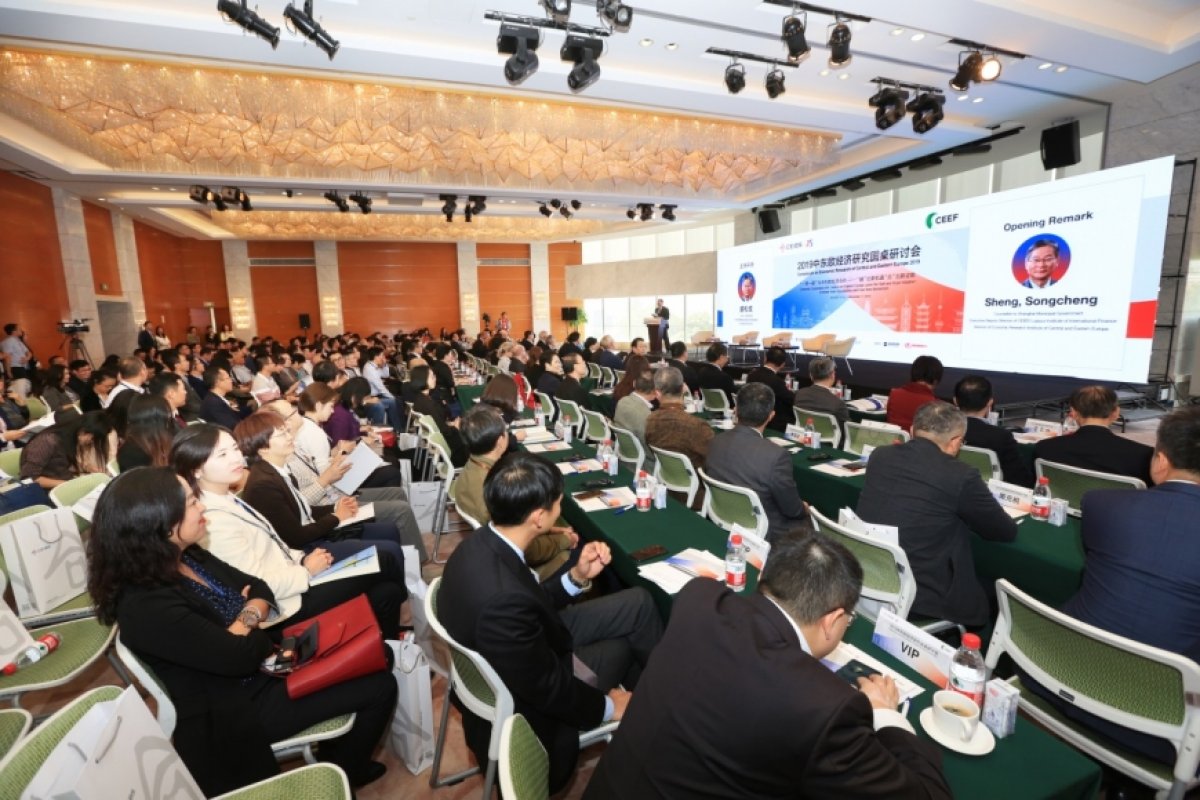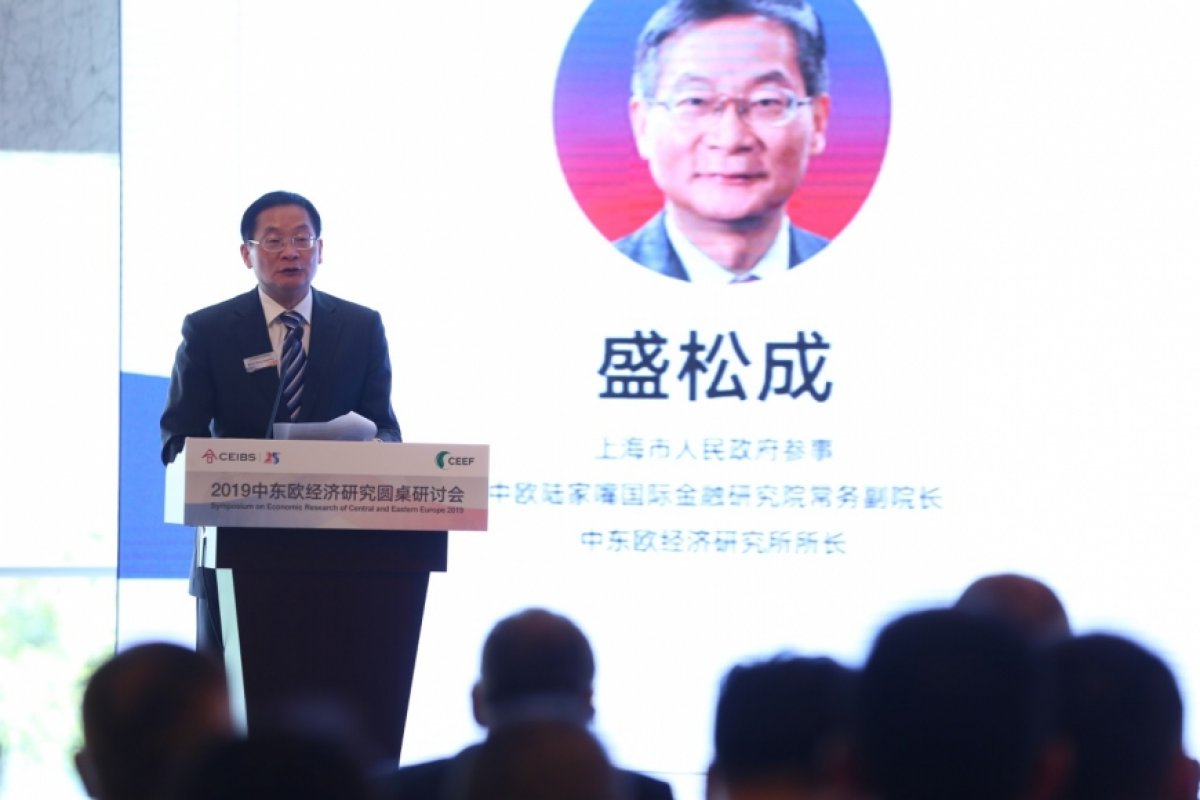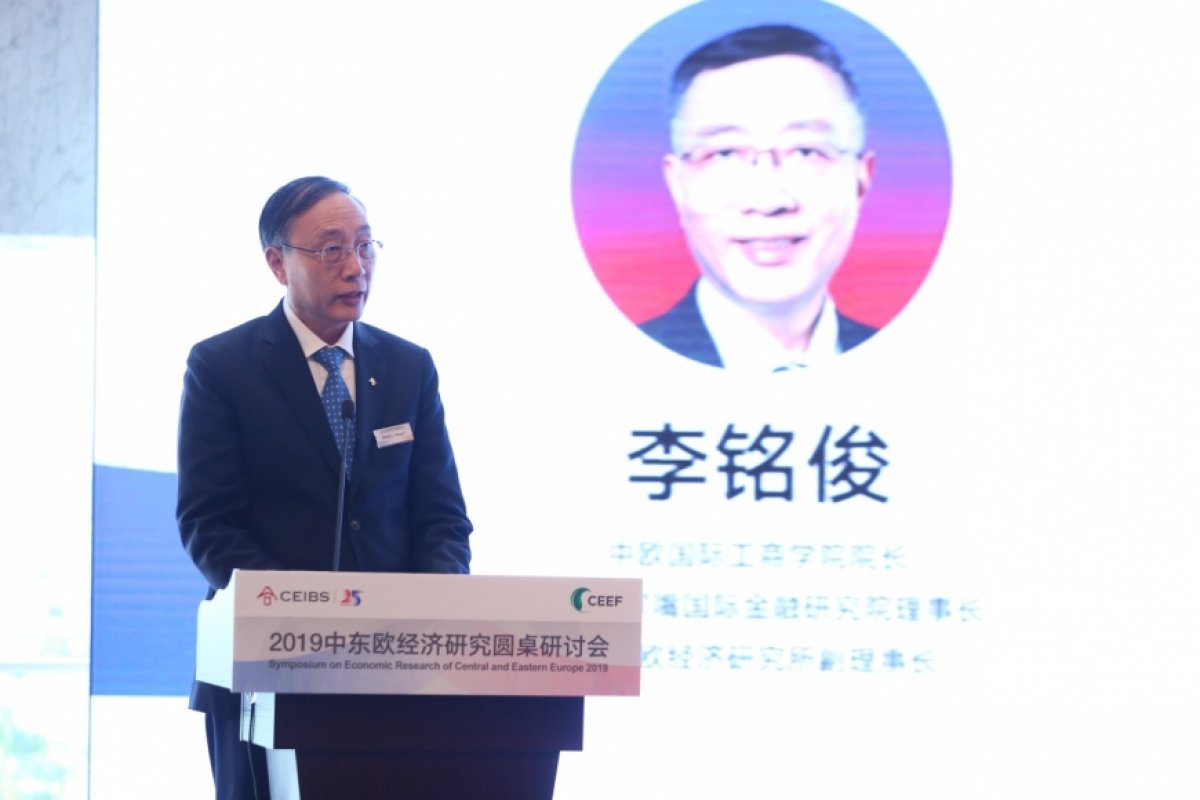Former UK PM Gordon Brown Praises CEIBS' Contribution to Europe-China Relations
November 1, 2019. Shanghai – Former UK Prime Minister Gordon Brown praised CEIBS today for its contribution to China-Europe relations at an economic forum hosted by the school in Shanghai’s Lujiazui financial district.
Mr. Brown, along with Former President of the Federal Republic of Germany Horst Kohler, and Former Prime Minister of France and Distinguished Professor of CEIBS Dominique de Villepin, spoke at CEIBS’ “Symposium on Central and Eastern Europe 2019.” An audience of around 150 heard impassioned discussions and debate on the theme of “Economic Co-operation with Central and Eastern Europe under the ‘Belt and Road Initiative’: Embrace New Opportunities and Gain New Momentum” at the event, which was organised by the CEIBS Lujiazui Institute of International Finance and the Economic Research Institute of Central and Eastern Europe.
During a roundtable discussion hosted by Jiang Jianqing, Director of the CEIBS Lujiazui Institute of International Finance, Mr. Brown delivered a speech outlining his views on the current state of the global economy and strongly emphasised the need for international co-operation.
“I want to congratulate CEIBS on your 25th anniversary, and I have no doubt you will continue to serve relations between China and Europe, and in particular Eastern Europe, in the years to come," said Mr. Brown.
The three former statesmen all complimented China’s rapid development in recent years, and jointly concluded that the world is changing because existing successful partnerships and organisations are coming under strain. China and Europe should rise to this challenge by strengthening their co-operation for the benefit of the world, they argued.
Mr. Kohler said, “I want to praise China and the effort of its entire population which I have gotten to know as immensely creative and eager to learn,” he said, adding, “But China’s rise was also facilitated by the openness of the west and by its inclusion in the world economy and international organisations – thus the history of China’s rise is living proof that integration and not isolation […] pave the way to prosperity and, I believe, peace.”
Sheng Songcheng, Counsellor to the Shanghai Municipal Government and Executive Deputy Director of the CEIBS Lujiazui Institute of International Finance, had earlier opened the symposium. Professor Sheng said that having 17 Central and Eastern European partners signed up for China's Belt and Road initiative was a very important and beneficial component of China-Europe relations in general. With this in mind, he explained, political, business and academic leaders in China and overseas should work together to explore further co-operation, as the Belt and Road is of great significance to Central and Eastern Europe's economic prospects.
At the event, the Central and Eastern European Economic Research Report 2018-2019 was officially released. The paper comprehensively analyses the macroeconomic environment of Central and Eastern European countries in 2017-2019, national economic development strategies, major economic policy changes, important political events, and the latest developments in China’s economic and trade relations with Central and Eastern Europe.
Li Mingjun, CEIBS President and CEIBS Lujiazui Institute of International Finance President, revealed CIEBS and the SINO-CEE Fund had established the Economic Research Institute of Central and Eastern Europe. “We hope that by studying the relevant countries’ economies, finance, real estate, investment and trade sectors, as well as relevant cultural and social spheres, we can provide close support and intelligence on the Central and Eastern European market for Chinese enterprises, increase economic co-operation and help realise the aims of the Belt and Road Initiative,” said President Li.
Huo Yuzhen, Special Representative for China-CEEC Co-operation, Ministry of Foreign Affairs of China, also spoke at the event. The former Chinese Ambassador to the Czech Republic and Romania, gave a speech outlining economic connections between Central and Eastern Europe and China, pointing out that the two had much in common, having developed quickly during the last few decades. Ms. Huo spoke of both sides’ determination to respect each other’s viewpoints on major issues and to jointly lay down rules for fruitful co-operation to ensure mutual benefit.
Chen Jin, CEO of SINO-CEEF Europe and Deputy Director of the Economic Research Institute of Central and Eastern Europe, hosted a second roundtable on “How to Create New Growth Points for China-CEE Co-operation”. The discussion featured speakers Xu Bin, Professor of Economics and Finance, Wu Jinglian Chair in Economics and Associate Dean (Research) at CEIBS; Chen Liming, Vice President, Jin Jiang International Group; Elie Younes, Executive Vice President & Chief Development Officer, Radisson Hospitality AB; and Zita Zoltay-Paprika, Dean of Corvinus Business School, Corvinus University of Budapest.
The panel discussed how China and Central and Eastern Europe could deepen their economic co-operation and find new opportunities, and concluded that the scope of co-operation needed to move beyond traditional models to a more wide and all-encompassing range of areas for partnership, such as in tourism and consumer service.
















